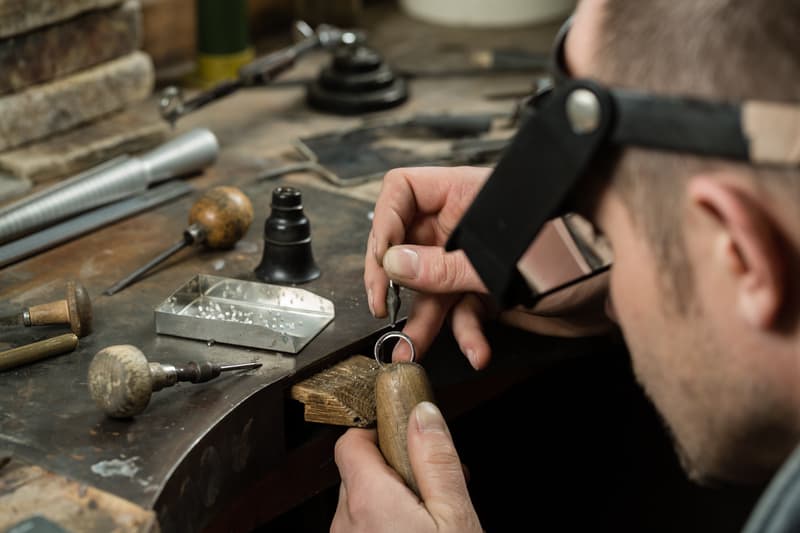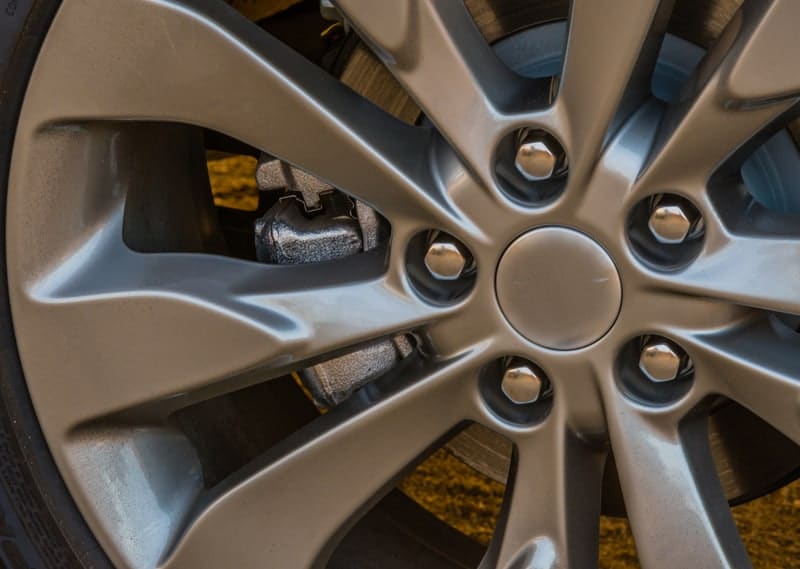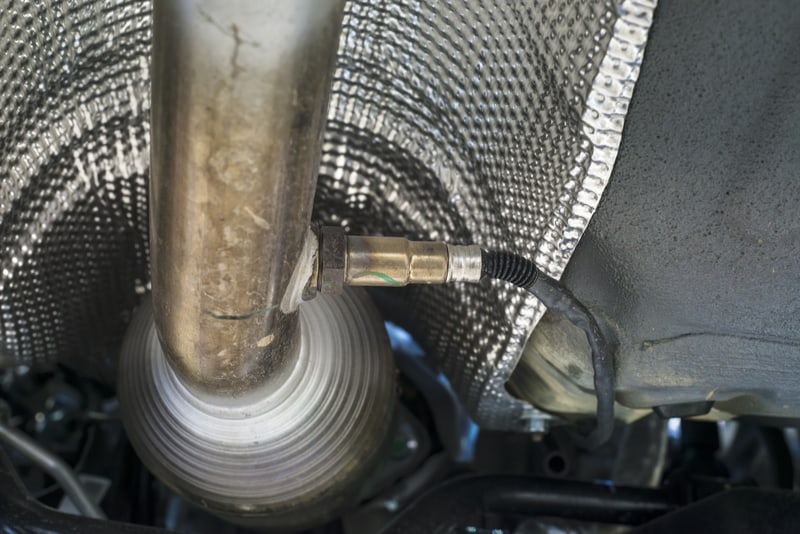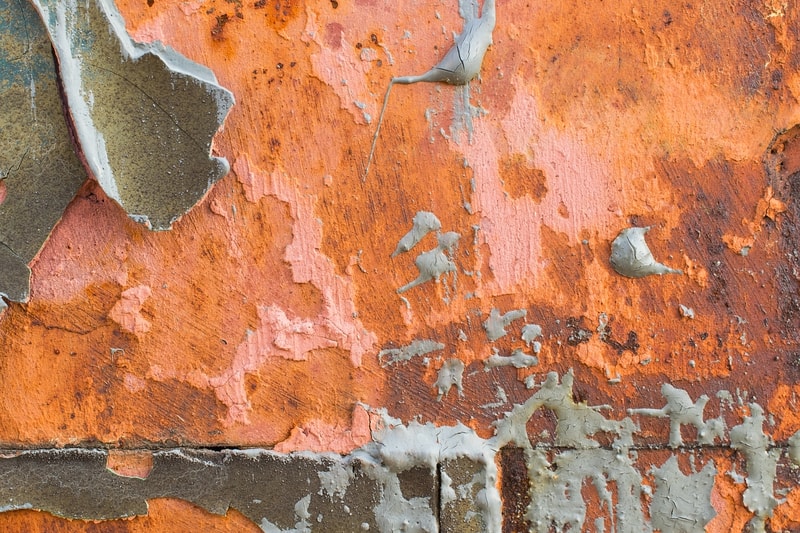“This post contains affiliate links, and I will be compensated if you make a purchase after clicking on my links.”
Gluing silver might need to be done for several reasons, including restoring a broken piece of jewelry or gluing silverware together. There are many precautions to take into consideration if you are attempting to glue silver.
You can glue silver. To do so, make sure that the items are clean and free of any dirt or dust particles before applying glue and apply a small amount of glue onto one side at a time. Additionally, you will need to follow some specific precautions to do this process safely.
Read on to discover when it is appropriate to glue silver and how to do so. We will discuss the process of gluing silver as well as what glue to use in each situation. Additionally, we will look at the overall best glue for repairing silver and some of the advantages it has over some other adhesives on the market.
How Can I Glue Silver Together?
If you are attempting to repair a silver piece by gluing it, you must clean both surfaces of the pieces with a dishwashing liquid and dry them. You should choose the right type of glue for the piece of silver you need to repair. Some may cause rust spots or damage over time.
To glue silver:
- Apply a small amount of glue onto one side at a time.
- Apply glue sparingly so that no excess is left on either surface.
- Wipe away any access with cotton swabs dipped in rubbing alcohol before the adhesive sits for ten seconds.
- Allow 24 hours before handling glued pieces.
Allow the glue to dry to be sure the piece has cured and the joint is solid. Check for glue that may have squeezed out of the joint and wipe with a cotton swab dipped in rubbing alcohol. This will create a smooth, barely noticeable joint in your silver piece.
It is not recommended to use glue as an adhesive antique piece because it will damage the piece over time. If your antique silver piece needs repair, you can try soldering instead, which does not contain harmful materials like some glues do but takes expertise and experience to do well.
How Much Glue Do I Use for Silver?
Before applying glue, ensure all surfaces have been cleaned to get rid of dirt and oils, which may interfere with how well glue will adhere to the surface. Doing so will allow you to use the appropriate amount of glue without the issue of not bonding correctly.
When gluing silver, use a pea-sized amount of glue for small pieces. Many epoxy types of glue come as two-part glue and may require you to use more than other glues.
If the glue does not work well, it may be because you used an adhesive that is too strong for the material, or your glue was not intended for use on silver. Be sure to check the packaging of each glue to ensure it is compatible with silver or other metals.
What Type of Glue Do I Use for Silver?
The type of glue you use will depend on the size of your project and how much clearance you need to work around the bond before it cures. Some can be used indoors because they cure well under moderate heat conditions.
Silver glue like E600 is made for bonding metals like silver and copper. It works as a contact cement that dries in seconds when it comes into contact with metal surfaces.
Glue manufacturers have created glue sets explicitly designed for repairing jewelry or holding stones onto gemstones, so if this is what you’re looking to do, then check out these products first. E600 is a great glue for silver jewelry. Other glues for silver jewelry like DevCon 5-Minute Epoxy may be best.
Do Glue Joints Need to Be Clamped?
There is a popular misconception that glue requires clamping for the glue joint to cure fully. It would be best if you glued your silver when you’re doing a project that requires heavy pressure, like furniture or knick-knacks with lots of decorations. You can also use clamps if your project is meant to be very heavy (like an armoire)
Glue joints on silver do not need to be clamped. Using clamps is only necessary when making furniture or other items requiring extra pressure on the glued pieces. You don’t want stress on the silver’s glued joint while curing.
Clamping also has its disadvantages, like added weight which slows down drying time because you’re adding more moisture-absorbing material into contact with the glue and increased risk of damage due to over-tightening or accidental crushing. You may want to consider using clamps if you have heavy objects that will cause distortion, such as furniture.
Can You Use Super Glue to Glue Silver?
There are many different types of glues out there; each one made for specific applications. Some glues are better at adhering to certain materials like:
- Plastics
- Paper
- Wood
- Metal
Other glues offer better durability, such as epoxy. The adhesive should also have some form of moisture resistance, depending on your project needs.
Super glue is not a glue that can be used for silver because it’s a chemical compound with cyanoacrylate as the main ingredient. Superglue works well on ceramics and glass but will cause irreparable damage to silver objects if applied, so don’t try this!
For glue that is specifically made for silver, the best glue to use would be polymer glue. Polymer glues are more pliable and let you apply them with more control than other types of glue, which can help when working on such detailed projects as jewelry or picture frames.
No matter what type of glue you choose, though, make sure not to spread it too thin because this will create an adhesive surface rather than a strong bond—and potentially cause your project to break apart at the seams!
Can I Use an Epoxy Glue on Silver?
There are many different types of glue on the market, but if you’re looking for strong yet low temperature friendly, then epoxy may work well for your project needs. If you’re looking for something stronger yet still low-temperature friendly, then epoxy may be ideal for your project needs.
You can use epoxy glue on silver. Epoxies work well on metal objects because they can be used in high-temperature environments and won’t melt glue or plastics. Epoxies generally work best with metal because it doesn’t interfere with welds as much as other glues would.
Epoxy glue is an excellent option for higher heat use because most epoxies don’t expand when heated at temperatures below 200 degrees Fahrenheit – this means that there isn’t an increased risk of glue melting off the object being glued!
The downside to using epoxy, though, is cost; while some brands are less expensive than others, epoxies are generally more expensive glue because of the materials used. Epoxy glue may cost more than the average glue, but it will most likely hold better.
Can I Use Gorilla Glue on Silver?
Gorilla glue is often used in home improvement projects because it’s strong and holds up to different types of stress. It may be tempting for those working with silver to use glue, but actually, gorilla glue should not be used on silver. Silver begins to tarnish when exposed to oxygen over time; this means that any glue left behind will cause the silver object being glued together to turn black.
Gorilla glue will not be able to help you glue pieces of silver together. Gorilla glue is not metal friendly, and it will not stick to silver. The glue is water-based and creates an organic adhesive that can glue wood, paper, or any other porous material.
Gorilla glue doesn’t interfere with welds as much as other glues would. Epoxy glue is an excellent option for higher heat use because most epoxies don’t expand when heated at temperatures below 200 degrees Fahrenheit.
Can I Use Tacky Glue on Silver?
Tacky Glue doesn’t bond easily with surfaces such as steel or most plastics. It causes air pockets in between them, so there is still some room for movement over time.
Tacky glue works well with porous surfaces like cloth – but it’s generally not recommended for surfaces such as silver. This is because tack glue dries too quickly to be able to get a good bond.
If you want to glue silver together, the best glue to use is metal glue. But before using any glue on your silver, make sure that it’s not too hot or cold – if either one of these conditions is present when bonding the metals, then they’ll end up separating and ruining both pieces.
What Is the Overall Best Glue for Repairing Silver?
Epoxy glue is one of the most durable glues to use on any project, and when gluing silver it can offer an unmatched strength for joints. When compared to some other glues normally used for silver, epoxy-based glues typically come out on top.
The best glue for fixing silver is a two-part epoxy that must be mixed thoroughly, such as Devcon 5-Minute Epoxy. This glue needs only five minutes to set with a strength of up to 1,500 pounds per square inch! It dries clear and is a water-resistant, long-lasting adhesive.
The advantages Devcon 5-minute epoxy has when repairing silver is:
- It’s clear and water-resistant.
- The glue only does well on non-porous materials, including metal. This means it won’t work if the glue goes through or attaches to the fabric underneath.
- Devcon 5-Minute Epoxy adhesive cures and joins materials together in as little as 5 minutes.
Devcon’s quick and heavy-duty reaction results in a high-strength bond resistant to the most common chemicals, making it an ideal household product for your hobbies or crafts.
How To Properly Repair Broken Silver Pieces with Glue
Some people may not think glue can be used to repair broken silver pieces. However, glue is a great way to fix the item properly. Find an adhesive that matches the material and glue it back together with water-resistant glue-like Devcon epoxy for metal or clear glue for glass or plastic materials.
To properly repair a broken silver piece with glue, apply epoxy glue evenly until you see no bubbles left on the surface of your product. Place the piece between two flat surfaces and let cure for at least 24 hours before handling again.
In order for the bond to hold and be as strong over time, you must be sure the piece is prepared and ready for glue. Before gluing anything together, you must make sure:
- That both pieces are clean before application (soap and water work).
- To match the temperature, so they don’t separate when bonding if either piece becomes too hot or cold during the repair process.
Once these things have been addressed, all that’s left to do is apply glue liberally with an even layer between both surfaces being glued together – then hold firmly until dry! Gluing silver with glue is a quick, easy fix that can be done at home.
Conclusion
The process of gluing silver can be intimidating to some, but by following these precautions and tips for gluing silverware and jewelry, anyone should be able to do it. Keep in mind that you will need a clean surface before starting the project and an appropriate amount of glue applied at one time. Silver is a precious metal, and if not appropriately glued, then there could be consequences such as discoloration or tarnishing occurring after the application.
Gluing silver is a delicate process and can be tricky to do successfully. There are many precautions to take into consideration before attempting any glue on your own, including the type of adhesive you use and what surfaces it will adhere to. Consider how much time it takes for the adhesive to dry and whether or not you need an acid-resistant surface.
Sources
Bundle Precision Industrial Rhinestone Applicator | Amazon (amazon.com)
Devcon Epoxy Minute Bottles 250ml | Amazon (amazon.com)
How to Use Super Glue on Sterling Silver | hunker.com
Top 5 Best Glue for Jewelry Making | Learning Jewelry (learningjewelry.com)
Jewelry Glue | My Classic Jewelry (myclassicjewelry.com)




